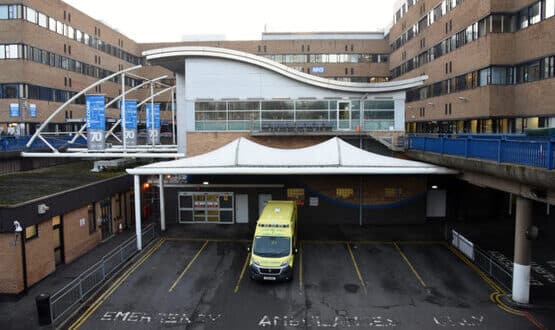Better info needed for Francis response
- 6 February 2014

NHS trusts may be struggling to collect and process the information they need to respond to the Francis Inquiry into the scandal at Mid Staffordshire NHS Foundation Trust.
A report by the Nuffield Trust, published today to mark the first anniversary of Robert Francis QC’s second report into high death rates and poor care at Mid Staffs, says managers have recognised the need to collect both hard and soft data about what is happening at their organisations.
The report, based on interviews with unnamed senior staff at unidentified trusts, says they were concerned with implementing Francis’ recommendation to collect real-time data from wards and clinical specialities, and to make better use of complaints and ‘soft intelligence.’
However, it says they are struggling to obtain hard, quantitative data and to decide how to balance it with less formal reports. At one trust, interviewees complained there was a danger of “information overload”, particularly for boards, which tend to demand streamlined performance reports.
The Nuffield Trust also notes that the increased scrutiny of trusts by regulators has also created new data collection problems. “In some cases, the collection and validation of data needed by these external bodies was proving onerous for hospitals.”
The Francis Inquiry was published on 6 February last year, and ran to more than 1,700 pages, with 290 recommendations for preventing a scandal on the scale of Mid Staffs arising again.
The Nuffield Trust report says that, overall, the leaders of acute trusts have responded well to the report, and say that it has “added legitimacy to their efforts to give greater weight to improve and assure the quality of care.”
However, it notes that there are practical difficulties to achieving this, particularly in a tight financial climate.
“This is especially so if increasing staff is seen as the main route to improve safety and quality, at the expense of a more complicated (and politically challenging) reconfiguration of care pathways and services,” it adds. “This could prove unsustainable for some hospitals.”
Nuffield interviewees also acknowledged that there has yet to be a significant culture shift within trusts, and that, if anything, the regulatory regime may have made the NHS more defensive since it “continues to feel punitive at times.”
The government accepted all of Francis’ recommendations in principle, and followed it up with a number of reviews and reports, including a review by NHS England medical director Sir Bruce Keogh of 14 trusts with apparently high death rates as reflected in existing relative hospital mortality ratio figures.
The CQC has also been ordered to introduce a new inspection regime, and is due to start publishing ‘Ofsted-style’ indicators of trust performance later this spring.
In a response to the trust’s report, published on its website, Francis said he had been “very encouraged” by the response to his report, and, in particular, by the regulatory response and government initiatives to insist on a named consultant and nurse for every patient.
Ultimately, he argued, it is professionalism that will prevent similar scandals by “protecting patients from poor care and supporting those who shine a light on what is unacceptable.
However, he reiterated his report’s call for “coherent, national standards” to be introduced against which all trusts could be judged.
He also called for a reduction in the duplication of effort by regulators, and warned that they should not revert to “old ways of applying pressure amounting to bullying in order to enforce targets and financial requirements.”




